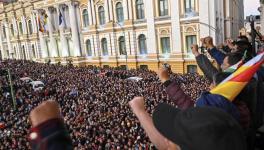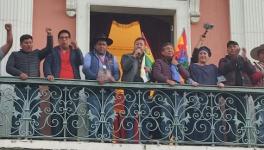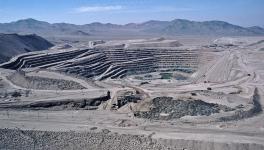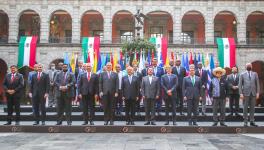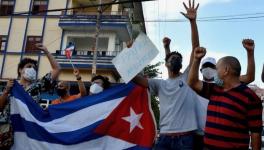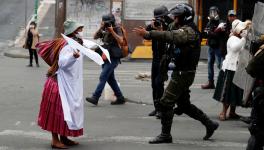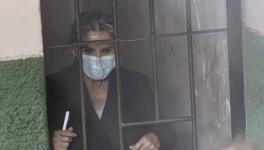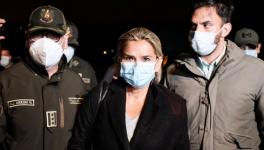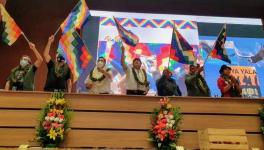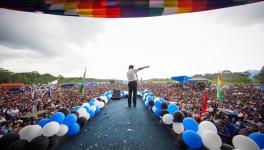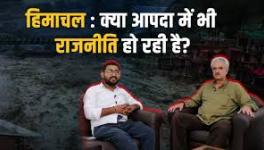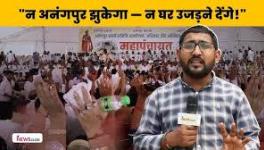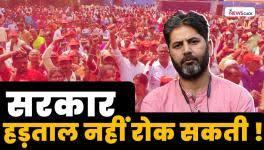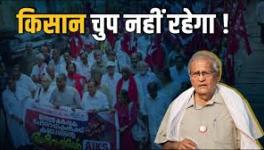Bolivia: New Faces, Old Rivalries in Presidential Elections
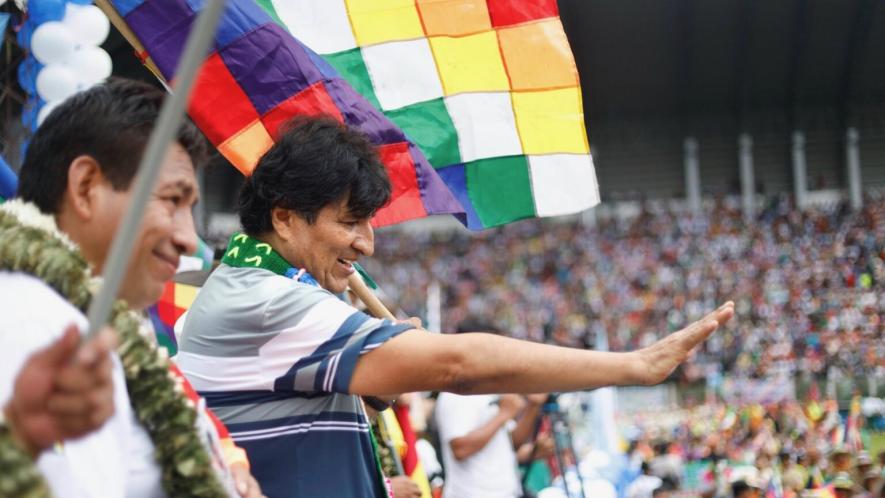
Evo Morales March, 2025. Photo: Evo Morales/X
On April 19, the Supreme Electoral Tribunal (TSE) of Bolivia registered 11 parties and five electoral alliances that will participate in the presidential elections on August 17, 2025. This does not guarantee 16 candidates, but that these parties and alliances will participate in the electoral campaign. Further alliances and partnerships are expected to form around political figures aiming for the presidential chair at the Palacio Quemado. The final list of presidential candidates will be announced on May 19.
A divided left
For several months, the Movement Towards Socialism – Political Instrument for the Sovereignty of the Peoples (MAS-IPSP), the hegemonic political party that has won elections in Bolivia since 2006, suffered an important internal fracture after tensions arose over the control of the political party and economic policy between the former president and trade unionist Evo Morales (2006-2019) and the current president, Luis Arce.
Luis Arce (MAS)
It is speculated that Arce, who managed to keep MAS under his control after a court ruling, will be a candidate for the presidential elections, although the country’s economic situation (which is experiencing a lack of fuel and dollars) has undermined his popularity. Arce faced an attempted coup in 2024, but managed to neutralize it thanks to a massive popular mobilization and the backing of the international community.
Evo Morales (EP)
Evo Morales has expressed his desire to run again for elections under a new political party called Evo Pueblo, although the Constitutional Court announced that it is not possible for anyone who has already governed for two continuous or discontinuous terms to run for the presidency. In a message on X, Morales said “We transmit to our militancy: tranquility and certainty. We have guaranteed a place to participate in the presidential elections of August 17. For security reasons and to avoid persecution, sabotage, and pressure from the government, we will not announce the party with whom we will go to the elections.”
It is presumed that his political movement will participate in future presidential elections. Morales resigned from the Presidency after a coup d’état in 2019 and had to go into exile to Mexico and then to Argentina. He currently lives in Bolivia and has been one of the most fervent opponents of Arce, who was his former party colleague and secretary of economy.
Andrónico Rodrigues (MAS)
Another former ally of Morales has begun to appear as a possible presidential candidate: 36-year-old Andrónico Rodríguez, president of the Senate and vice-president of Bolivia’s coca growers’ federations, of which Morales is president. However, Rodríguez did not attend a meeting in which the coca growers sought to define a single candidate for the presidency of the Republic. Instead, the young senator traveled to Spain and met with leaders of Spanish social democracy and the Podemos party. Rodriguez has proven to be a more moderate figure than Morales, although if he intends to become president, he will have to count on the support of the hard vote of the Bolivian left, so his strategy has been to keep a “friendly” distance from Morales.
The right is also divided
After an attempt to launch a joint candidacy in December 2024, the right has also split. Faced with a divided left, this is one of the best opportunities that the right has had in almost 20 years of MAS governments, and they had attempted to work on a grand alliance of the right. However, at the end of the unity project, the Bolivian right wing once again demonstrated its deep contradictions and historical tensions.
For now, three blocks of parties that will participate in the elections are known (although everything could change in the next months).
Samuel Doria (UN)
The candidate that has attracted the most attention is Samuel Doria with the National Unity Front. He is a multimillionaire businessman and former secretary of planning and coordination (1991-1993) in the government of Jaime Paz Zamora. Doria calls himself a social democrat, and therefore many see him as a candidate who could appeal to certain center-left voters who have historically voted for MAS. Doria has been a presidential candidate on three occasions (2005, 2009, and 2014) and was the vice-presidential candidate of Jeanine Añez in 2020, who had usurped the presidency of Bolivia after the coup of Evo Morales in 2019. In the end, the Añez and Doria ticket was dropped to support frontrunner Carlos Mesa.
Jorge Quiroga (Frente Libre)
On the other hand, the “Libre” bloc has expressed its intention to nominate former president Jorge Quiroga (2001-2002). Quiroga is an engineer and has been linked to sectors of Bolivian conservatism. He has promised that, if he wins the elections, he will “privatize everything.” He was also an official in the Paz Zamora administration as undersecretary of Public Investment and International Cooperation and secretary of Finance. He was Hugo Banzer’s vice-president in 1997, being the youngest vice-president in the history of Bolivia. Banzer and Quiroga had a public dispute that led to the split of the political party that brought them to the presidency, Democratic Nationalist Action. Quiroga demonstrated his predilection for neoliberalism and the use of public force to repress government opponents. After this, he was a presidential candidate in 2005, 2019, and 2020, losing on all three occasions against MAS. Quiroga played a key role in the coup d’état against Evo Morales in 2019.
Manfred Reyes (Bloque Súmate)
In another direction, the “Súmate” bloc has proposed businessman and former military man Manfred Reyes, the current mayor of Cochabamba, as its candidate. Reyes has been one of the main opponents of the creation of a joint candidacy of the Bolivian right. He has promised that if he wins the presidency, he will eliminate state subsidies on gasoline, although controlling its price so that it does not skyrocket excessively. In his long political history, his administration as mayor of Cochabamba (1993-2000) and presidential candidate in 2002 and 2009 stands out. In 2020, he took refuge in the United States after an accusation against him. He returned to Bolivia during the Añez coup government.
Overall, the right appears to be betting on old political figures who seem to have some confidence in an increasingly disenchanted electorate. This not only reveals the political crisis of the Bolivian right, which seems unable to launch new politicians into the electoral arena, but also an inability to reach minimum agreements. These divisions could become major challenges for a neoliberal government in the Andean country, which has one of the most active social movements (Indigenous and peasant) in the entire region. Movements that have been further strengthened after nearly 20 years of MAS governments.
Courtesy: Peoples Dispatch
Get the latest reports & analysis with people's perspective on Protests, movements & deep analytical videos, discussions of the current affairs in your Telegram app. Subscribe to NewsClick's Telegram channel & get Real-Time updates on stories, as they get published on our website.









